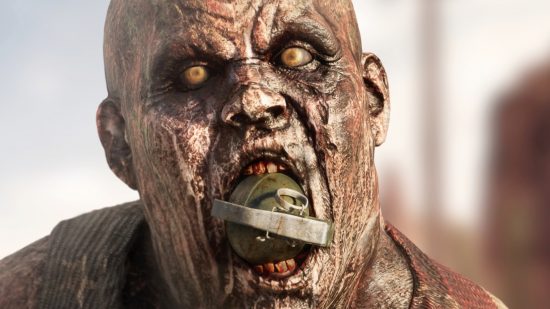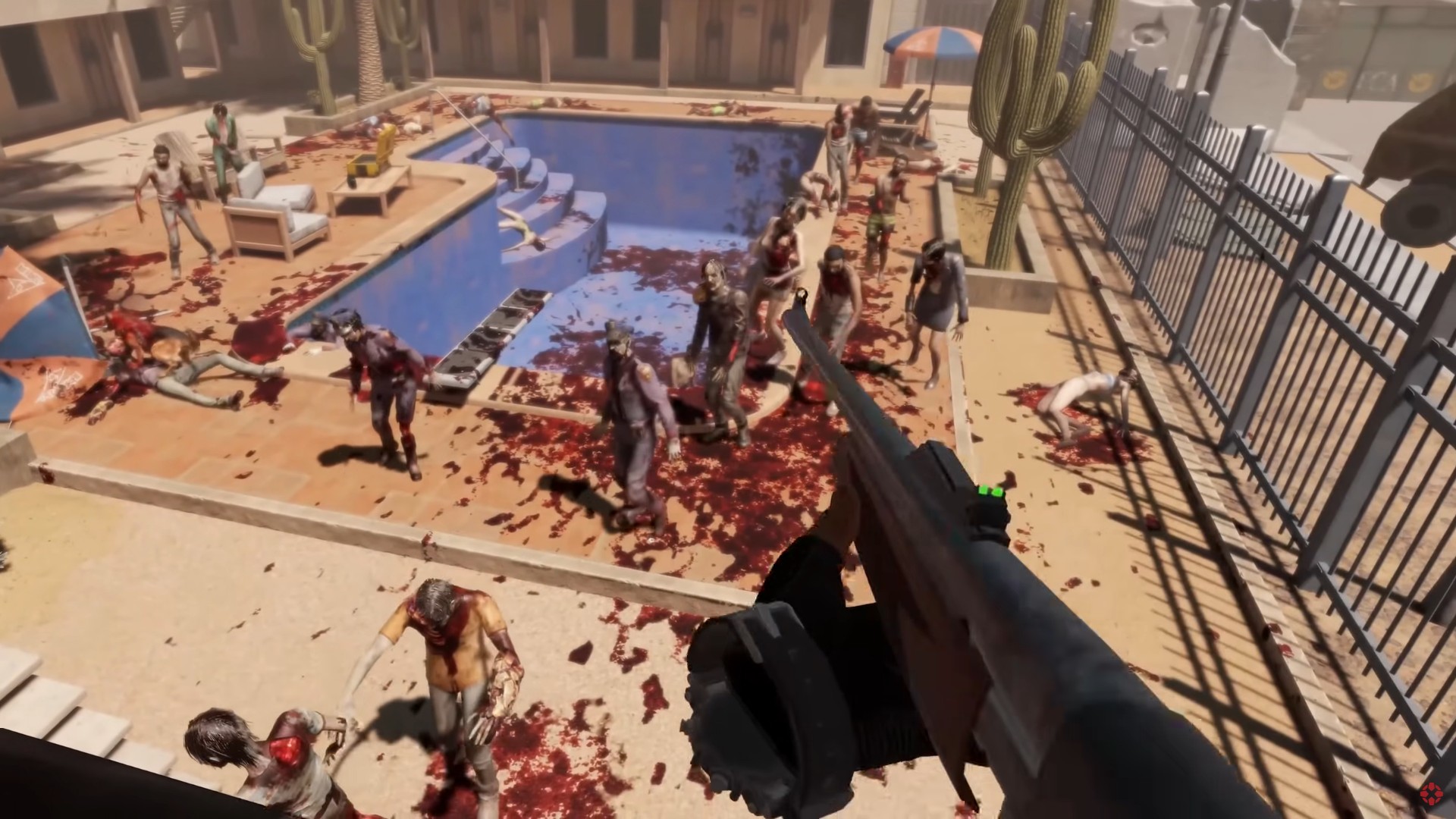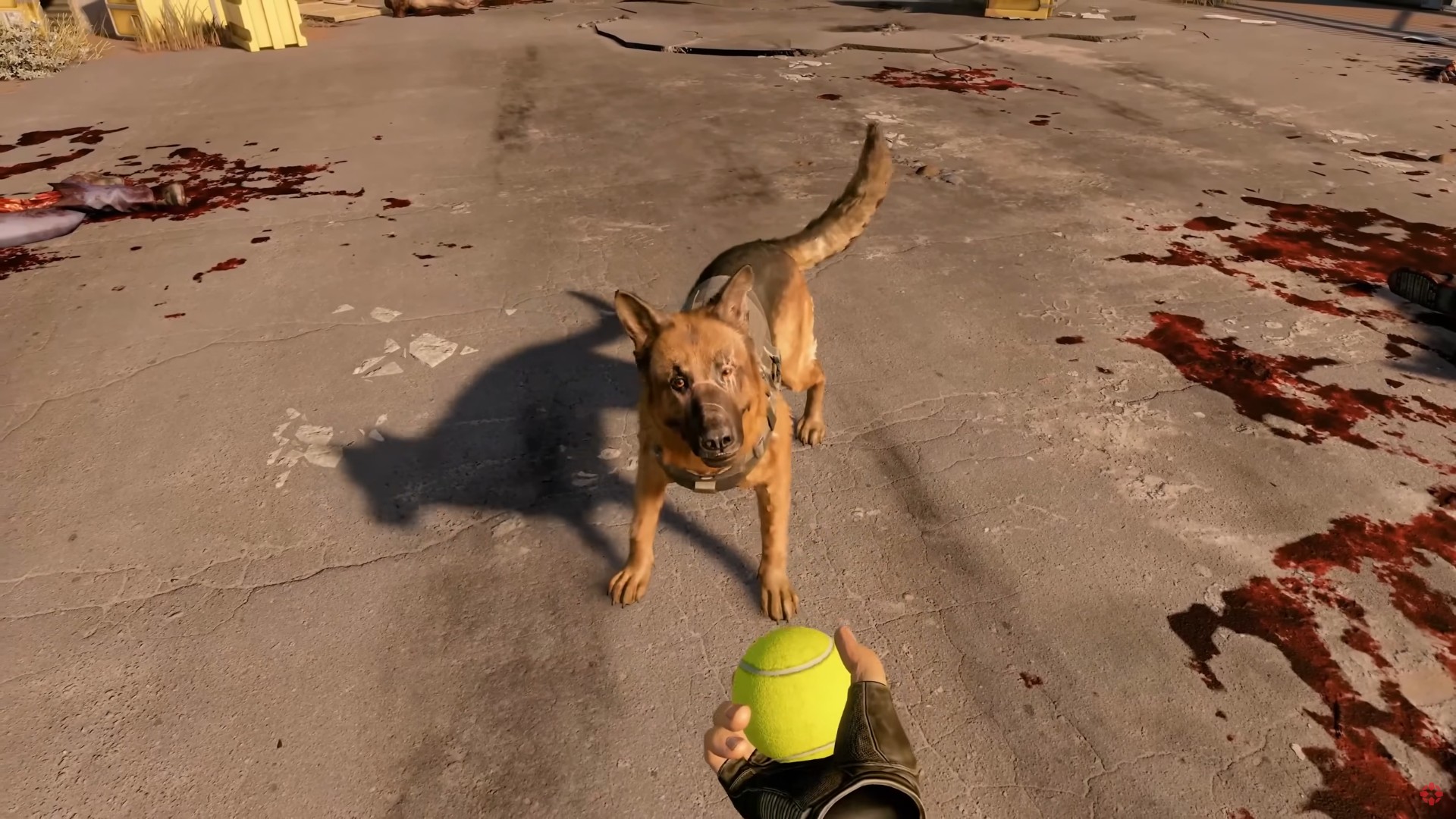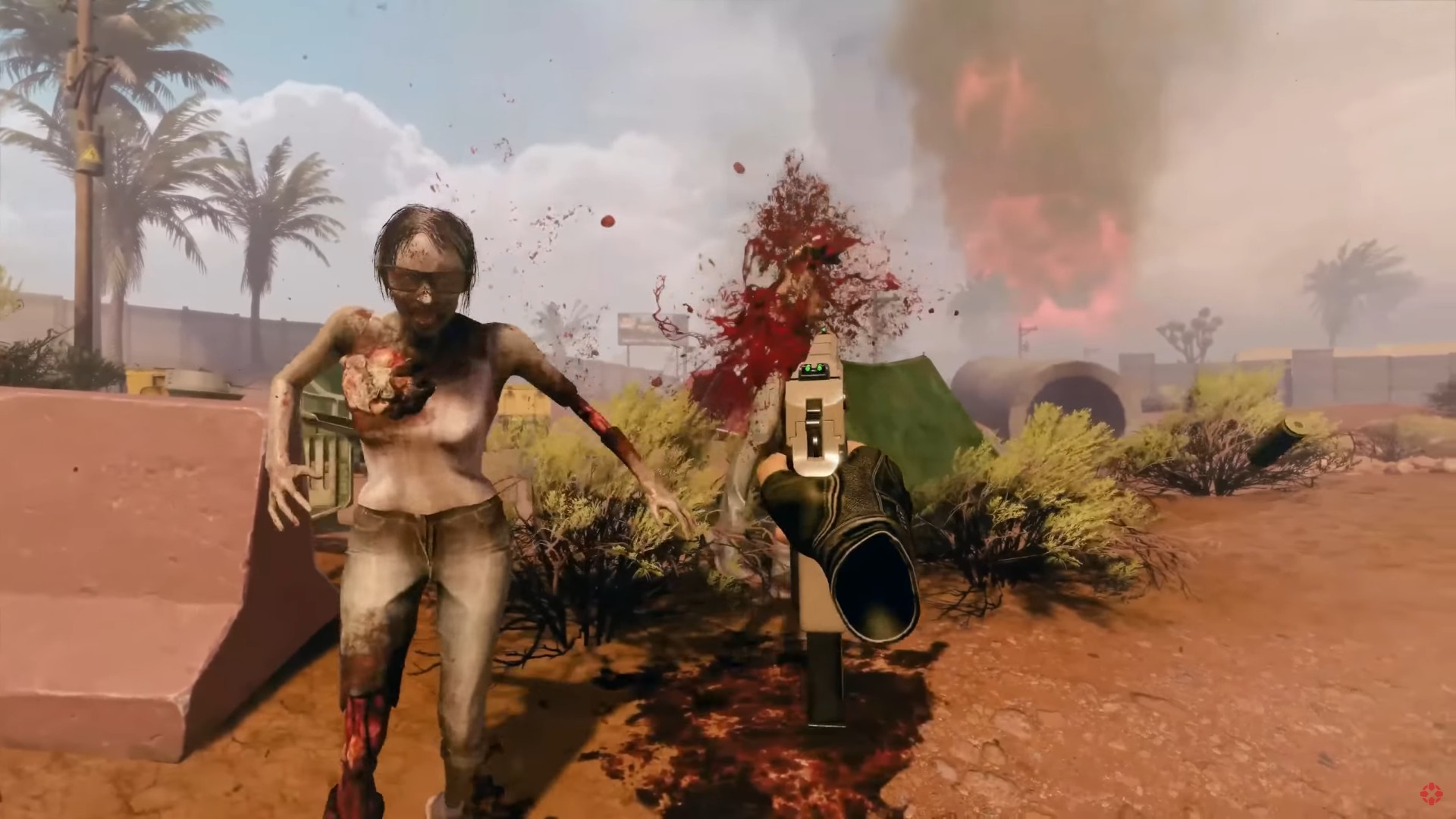There never appears to be a shortage of new zombie apocalypse games, with the disastrous The Day Before having only just launched, but very few nail both gallows humor and a contrasting sense of isolation quite like Arizona Sunshine 2. VR is all about immersion, and at times I truly felt scared and alone while navigating dark corridors, hoping that the sound ahead wasn’t a gaggle of undead because I was down to my last clip of ammunition. Still, I could always rely on the protagonist to crack a joke and lighten the mood before the battle ahead.
Arizona Sunshine 2 is a lot of fun, and I would argue one of the best Meta Quest 3 games, and best zombie games, you can play right now. This is largely due to its tone and world, rather than its core gameplay alone. Of course, the shooting, melee, crafting, and movement mechanics are tight, as I would expect from a studio with the VR pedigree of Vertigo Games. Where Arizona Sunshine 2 stands out, however, is its constant sense of dread, and the defiant comedic facade the protagonist puts on when facing the end of the world alone.

My time in Arizona Sunshine 2 started with trepidation, primarily due to a barrage of quips from the main character that seemed like they were going to set the tone for the game. Fortunately, this wasn’t the case. It takes just a few minutes for those emotional barriers to come down when you see a helicopter crash landing, causing the protagonist to reveal his true feelings at the prospect of maybe – just maybe – seeing another living human. The mix of glee and panic that sets in hits hard as you start to realize just how long this person has had to survive alone. It’s this brilliant presentation of what isolation can do to the mind that makes the eventual bond with our animal companion Buddy all the stronger.
This is also where a strong comparison to Dead Island 2 comes in from me. Another zombie game that tries to use humor and a lighter tone as a way to lift the mood of an apocalyptic situation, but I don’t feel it achieves it nearly as well as Arizona Sunshine 2. In Dead Island 2, it feels forced, like the decision was made that this game needs to be funny because the series has always had an undertone of sarcasm and cynicism. With Arizona Sunshine 2, the moments of comedy and humor feel much more natural way. As someone who does put up comedy as a defense mechanism, I fully connected with a character who is singing “bodies, bodies, bodies, rockin’ everywhere’’ as they navigate a truck filled with biohazardous corpses. This lighter behavior distracts from the grim reality of the situation and is a coping mechanism that’s helped with survival to this point, so why change?
I’m well aware that many people will play Arizona Sunshine 2 and potentially not even notice this, but it was an everpresent consideration during my time with the game, and it connected me to a world that, truth be told, isn’t the most expansive or creative that I’ve explored in VR. Again, I look towards Dead Island 2, a game I enjoyed but never connected with in the way that I did with Arizona Sunshine 2, because while there was plenty of effort and skill that went into creating that world, it seems no consideration was given to whether or not I should care about or connect with the character I control.
Humor alone is great, but another reason it works so well is the impending sense of doom brought about by the isolation of Arizona Sunshine 2. I never felt safe throughout my entire playthrough, even with a ferocious animal companion by my side. The atmosphere is heavy like a weight is constantly sitting on my chest, but before the game ever allows itself to become a pure horror experience, a one-liner snaps me back to reality. I’m not alone in having reacted to an awkward or scary situation with an uncontrollable laugh, and this feeling is constant throughout Arizona Sunshine 2.
A great example of this appears early on when you’re making it through a tight, dark pathway before eventually reaching the game’s first crafting station. It was tense in the lead-up to walking through the doors, and I wasn’t sure what to expect. Upon entering what I now know is a safe space, I was relieved, but shortly after falling into this false sense of security, the undead were banging away at the metal grates surrounding the room. It got a jump out of me, but my instant reaction after this was to laugh. They got me good, but the laughter was a nervous reaction to not knowing for sure that they weren’t eventually going to break through, so I did what I needed to do in double time, then got the hell out of there.
It won’t take long for you to realize that the protagonist also never refers to the undead as anything other than a ‘Fred.’ To me, this is another coping mechanism that is developed because calling them zombies or undead is an acceptance of what is happening, and they’re just not ready to admit that this is the world they live in.
Throughout the game the protagonist also lets their true intentions slip concerning other human contact. When the crux of the plot is first revealed – tracking down patient zero to identify a cure – rather than thinking of this as a way to end the apocalypse, the protagonist instead sees it as a way for them to be found, once again seeing and connecting with other humans.
Moments like this are sprinkled gloriously throughout Arizona Sunshine 2, making it a VR game I would recommend to anyone. We’re on the cusp of a golden era of VR, and when experiences like this can evoke such strong reactions and emotions in me, it’s a clear sign that we’re past the point of gimmicks and are ready to take VR more seriously.



